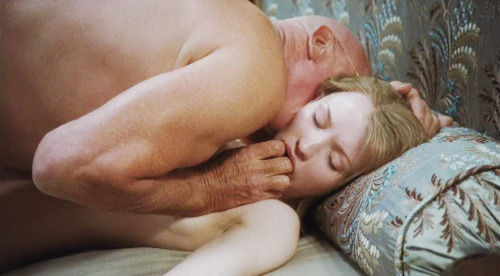Sleeping Beauty (2011)

Does anyone need a reason to be sexually reckless? I’m not sure. For much of my adult life, I’ve been sexually reckless (or careless, or heedless—take your pick) and I don’t know that a camera following me around would have picked up on any explanations as to why. But we expect more from art than we expect from life, which is why Sleeping Beauty, an Australian film about a young woman who will submit to anything for money, is such a disappointment.
Main character Lucy (Emily Browning) is like a lot of college students: pretty, promiscuous, apathetic, and broke. She holds a variety of odd jobs, including cafe janitor, human guinea pig, and Girl Who Operates A Xerox Machine, yet she never makes enough to pay her rent. Her family situation is uncertain, though we are let in on the existence of an equally broke astrologer mother. We have no indication of what she’s studying in school, what matters to her in life, or who matters to her, except for an alcoholic peer named Birdman whom she brings groceries and pointless chat. She and Birdman go back a few years. We know there’s an unfulfilled promise of a romance between them because Birdman says as much, but that’s about it. When we’re first introduced to him, Lucy casually makes him a bowl of vodka and cereal as they banter with each other in affected tones (“And how are you?” “Oh, I’m very well.”) It’s so dumb.
 Most readers will not have heard of the low-budget Canadian movie My Awkward Sexual Adventure. I had to review it because a) it was filmed in my hometown of Winnipeg, Manitoba b) one of the protagonists is a stripper (in fact, the club she works at in the movie is one that I work at regularly) and c) I found it infuriatingly filled with utter nonsense.
Most readers will not have heard of the low-budget Canadian movie My Awkward Sexual Adventure. I had to review it because a) it was filmed in my hometown of Winnipeg, Manitoba b) one of the protagonists is a stripper (in fact, the club she works at in the movie is one that I work at regularly) and c) I found it infuriatingly filled with utter nonsense.